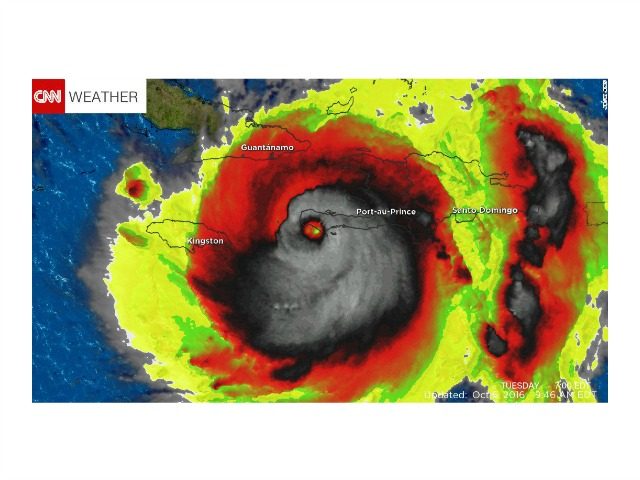Insurance executives are calling Hurricane Matthew the “Godzilla” of all storms, with $15 billion of estimated losses — the same amount as all United States natural disaster insurance claims paid during 2015.
Matthew is packing sustained winds of 145 miles-per-hour and gusts up to 165 miles-per-hour. Other big hurricanes in the past tended to roar across Florida in a four-hour period. But the slow-moving Mathew could take 60 hours to reach the Georgia border. The storm is then expected to trash the Mid-Atlantic coast at a leisurely pace, up to at least North Carolina.
Total U.S. natural disaster insurance losses hit 16.1 billion in 2015, up from $15.3 billion in 2014, according to Munich Re. Last year’s major losses included: $9.6 billion from severe thunderstorms; $3.5 billion from winter storms and cold waves; and $1.9 billion from wildfires, heat waves and drought.
The U.S. National Weather Service warned that Hurricane Matthew is not only packing Category 4 winds, but also brings up to 25 foot waves, a 9-12 foot storm surge, and 40 inches of rain in some spots. The horrific combination will cause deaths, wash out roads, and cut communication links and cause outages for several weeks.
Chuck Watson, disaster modeler with Enki Research in Savannah, Georgia told the Insurance Journal that the record number of emergency evacuations will cause an immense amount of business interruption insurance claims, with at least 1 million people temporarily displaced.
The storm path will hit at least twelve U.S. power generators, including two nuclear plants, according to data compiled by Bloomberg. Nuclear operators NextEra Energy and Duke Energy Corp. have already shut their reactors. Florida Power & Light utility, the largest electric utility in Florida, estimates that up to 1.2 million customers could lose power.
Although it is early in the recovery effort, there are already 261 confirmed deaths and 3,200 homes destroyed in Hurricane Matthew’s strike on Haiti. Local officials report that rescue workers and aid agencies have not reached any of the remote areas of the country to assess the damage.

COMMENTS
Please let us know if you're having issues with commenting.